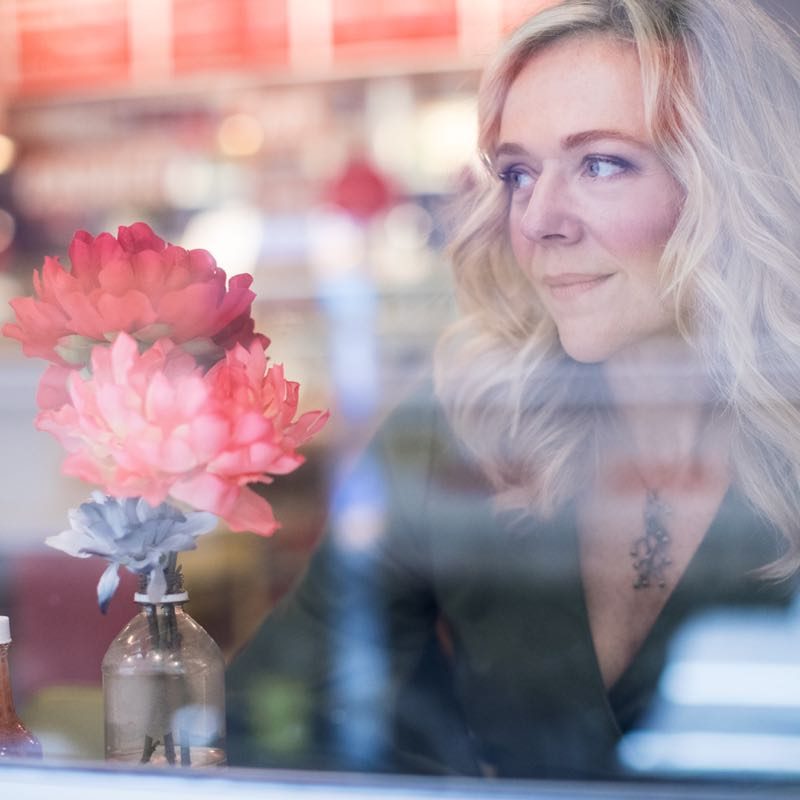An Interview with Rachel Bay Jones
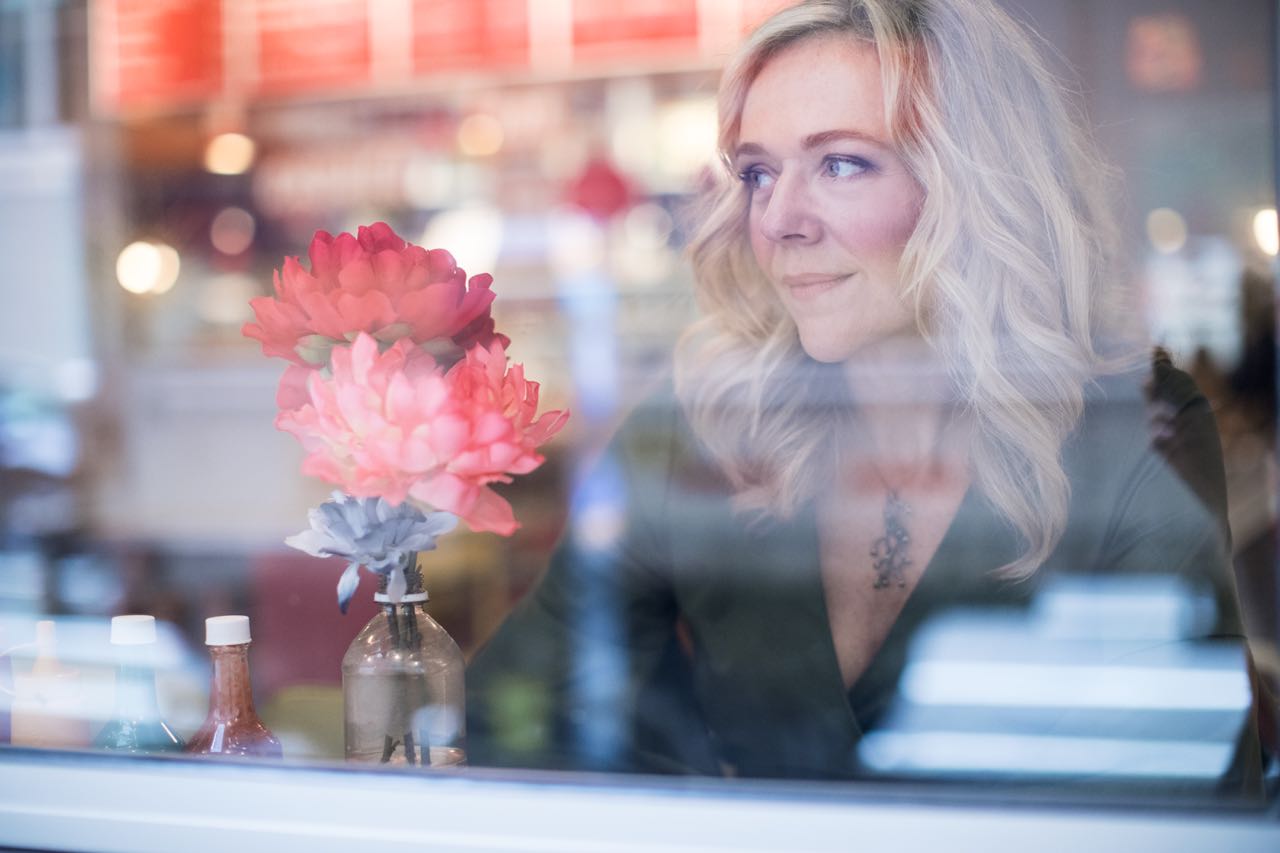
Written by Victoria Myers
Photography by Jacqueline Harriet
June 5th, 2017
In the last fifty years, the overworked, “doing the best she can,” single mom has become a staple of a certain type of American narrative. Dear Evan Hansen adds to that canon with the character of Heidi Hansen, Evan’s mother. Played by Rachel Bay Jones, Heidi is a multifaceted woman who the audience can sympathize with and still have their own thoughts and questions about her choices. Rachel, who has been with the show since its early stages, earned a Tony Award nomination for Best Supporting Actress in a Musical for her rich and layered portrayal. This isn’t the first time that Rachel has gotten attention for her interpretation of a role. In 2009, she came to the theatre community’s attention for her original take on Catherine in Pippin that left many people wondering, “who is she and where has she been?” And, much like her interpretations, she has had a slightly unconventional path to Broadway. We recently sat down with Rachel to discuss how she shaped her character, what she wishes people would talk about when they talk about the show, developing as an artist, and more.
For Heidi, what do you think has evolved the most since the first read-through?
I think we’ve tried to shape her authentically, and it’s been balancing how much of her dysfunction survived all of the edits—and what her relationship is like with Evan at the start of the show is different now than it was in the beginning. We used to see more of the intimacy that got lost through his relationship with this other family and then was regained in the end. Now we start with them being somewhat estranged and can only guess at how intimate their relationship used to be through a few little lines. That has been the biggest change, but it’s left me with the memory of what their relationship was like, which is kind of beautiful.
What, when you first did the reading, was the first thing that pulled you into the character? What was your initial point of connection like, “Oh, I know how to play this character”?
I knew her right away. She’s very close to the person that I am in many ways. I really identified with her relationship with Evan, and the idea that she’s in survival mode all of the time. I could really identify with that. A lot of parents can, especially single parents.
Do you find that there are any unique challenges with playing someone who is close to you instead of playing somebody who’s more distant?
We always try to find the recognizable thread. The thing that we relate to is always the strongest point to start from. Playing a character that is flawed and who faces a lot of the same challenges as a mother that I do brings all of my questions close to home every day, which makes the exploration of this role that much more rich and fulfilling, and my challenges as a mother are in my face all the time. That’s pretty big.
One of the things that I thought was interesting about the show and your character’s relationship with Evan is that there’s a lot left unsaid. For you, when you’re working on those scenes, do you do a backstory? Do you fill in all of that?
I find that in life, our conversations are really about what’s not said more than what’s coming out of our mouths. For me, a very natural part of crafting a scene is why we choose to say the words that we do, even though what we’re feeling or thinking or want to say can be very different. So yes, a lot of that was up to me. The writing is so good and I know Heidi so well and I know these situations—I just know them—so that always felt like a very natural part of it for me. Right away, I knew what she wanted to say and couldn’t, what she means when she says something. It was always very clear to me. But that’s been my job.
In the show, you have these two archetypal moms at polar ends of the spectrum. Was there anything with Heidi that you wanted to subvert in terms of the audience’s preconceived notion of, “This is the single mom trying to do the best that she can”?
We wanted to stay far away from her being a stereotype, but there are certain truths about that relationship—the too-close relationship with your child, the dependence on our child for friendship, the deep loss when the child grows away from you and grows up—are felt more strongly by a single parent, I think. Rather than spending a lot of time avoiding stereotype, it was more digging into what the real truths are, rather than the surface truths. But there is a very real, common thing which is, here’s this struggling person, and this mother needs her kid to be okay because it’s all about survival. The need for her child to be okay is so great, it’s too painful sometimes to look at who her child really is and what’s actually going on with him, because [it’s like], “We’ve just got to keep going. You’ve got to buck it up and keep going. You’ve got to be okay because I need you to be okay. I’m too busy to handle anything else.” It was really necessary for us to have the realities of her challenges be present in the text. Steven [Levenson] really wanted that, and he was always very collaborative with me in making sure those things were evidenced in the script.
That’s actually something I wanted to ask you about: the decision by everyone to let her rough edges show, which seems unusual in a musical.
Yes, and that’s what I love the most about this musical. All of these characters can be defined by their flaws. It was very, very important for me for Heidi to be human, and therefore, that much more relatable and interesting.
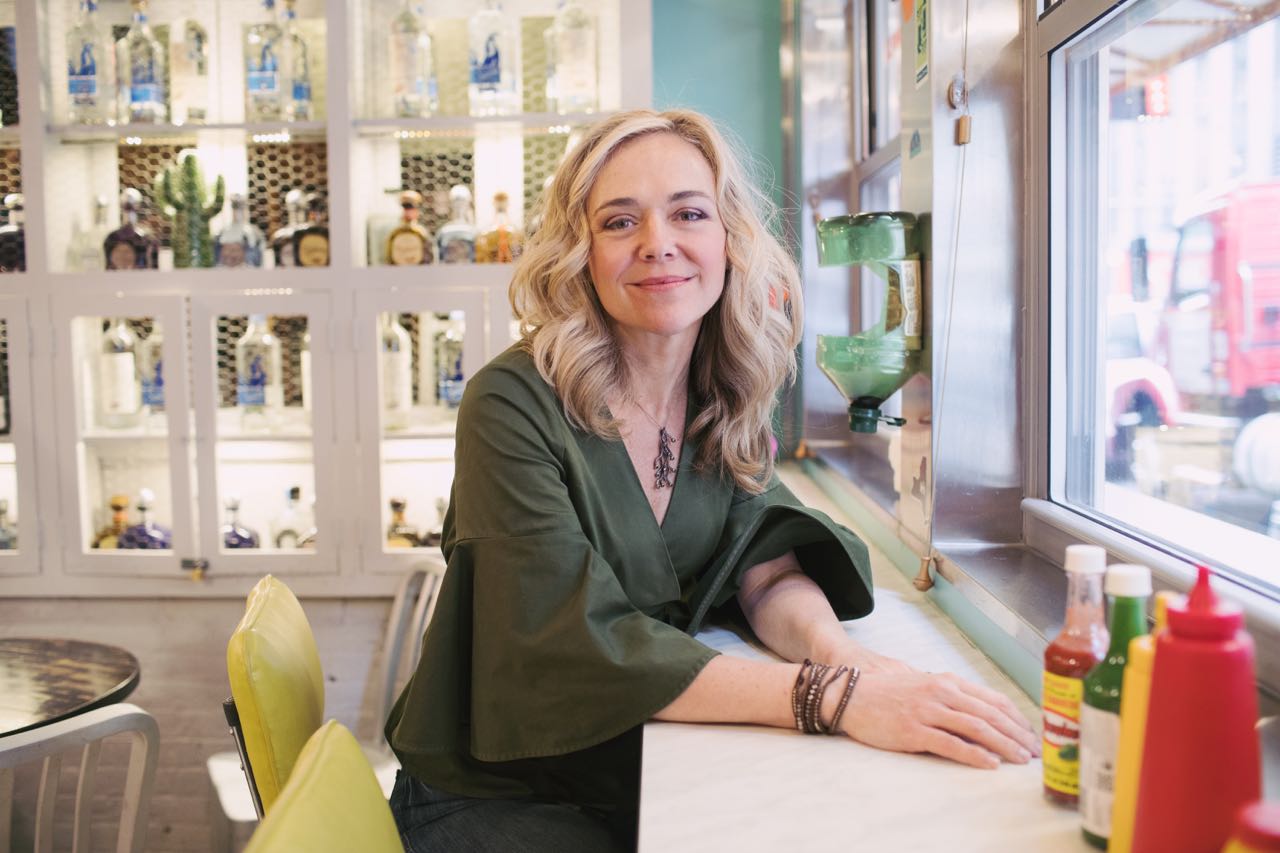
For your process, when you’re in rehearsal, do you like to do a lot of work at home and come in with an idea of “This is who the character is,” or do you like to leave it more open to seeing what happens in the room, or some combination thereof?
I walk around with her. Once she’s in my heart and in my body, I walk around letting my thoughts about her be influenced by the experiences that I have in my life, the things that I see in the street. Once I start to focus on developing this person, then everything else are building blocks. People I see, interactions I have—I’ll start drawing connections all over the place. That’s one of the interesting things about having to be a parent outside of being an actor is that you don’t leave it in the rehearsal room or on the stage. It’s constantly being worked on 24/7—I dream about these things. To have to have to set aside that brain and focus on another person that you’re raising can be difficult.
Do you do anything visual like, “This is what she looks like”?
Definitely—her appearance was important. I had a big say in that. I was cast for a particular reason, so it was an evolution of my own sense of style and vulnerable aspects of myself that I thought would be interesting as Heidi. The fact that she dresses too young for her age, the fact that she still wears her hair long and still wants to be seen as sexy and desirable, the idea that when she goes to the wealthy family’s house, she puts on all of her jewelry and it’s turquoise and brass and there’s too much of it. That her hair was frizzy and processed. That it was evident in her physical appearance that she was trying, but unable because of her economic status and lacks the time to take care of herself.
Going back to letting the rough edges show, how was that for you to process? Like, “Okay, here’s how the character’s like me in the good ways. Here are the ways she’s like me in ways I’m comfortable exposing or ways that maybe I’m not comfortable exposing, but I’m going to do it anyway”?
Always going for the discomfort. Really always going for discomfort, because that’s where the truth is. If there’s something that makes us uncomfortable, you can be damn sure that there’s something inside of that. We’ve got to investigate that. We’ve got to stick our fingers in there and get in there. If there was something awkward, if there was something uncomfortable, if there was something ugly, it feels like my job to show that and to get in there and explore that. I think that’s a big part of why this show works, why the character works, because for me and I think for the creators, one of the strong messages of the show is that we can allow ourselves to be seen by the people who love us. We need to allow ourselves to be seen by them and that we can be forgiven of our flaws to be loved because of our flaws, through our flaws and not in spite of them.
Now that you’ve been doing this show for a while, what has surprised you most about the character or something new that’s interesting and not what you were expecting?
It’s not a linear growth. Every performance is a different discovery. It’s hard for me to measure that and it doesn’t feel like there are milestones of, “now I understand this, now I understand that, now I understand that.” It feels like I’m swimming around and exploring all of the aspects of the truth of this situation. But I certainly know her.
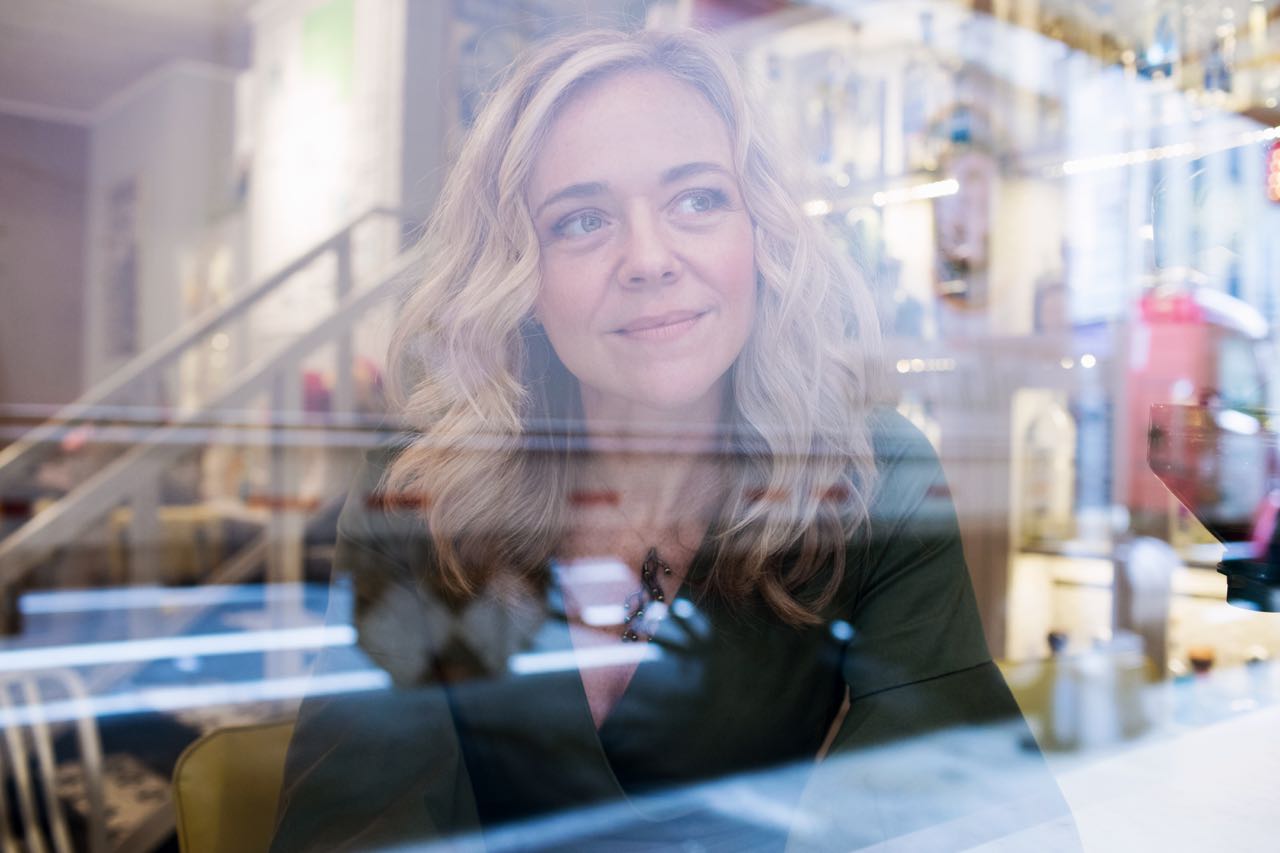
I want to go back and talk about your career as a whole. I know you moved here as a teenager and you were in a show right away. That’s an age where you’re really finding yourself, and to also be thrown into show business, what was that experience like?
I had no idea who I was. I wasn’t even entirely sure I wanted to be an actor. That was something that I did. For most of my life, and even now, the thing that I can say is that I love the work and I love what it means to be on stage and guide an audience through a story and an experience. But the life of an actor was never something that I wanted to have, so I resisted that for a very long time.
I know both of your parents were actors, but not really pursuing it when you were growing up. Did you feel like you knew what the life of an actor was, or was that something of a big surprise when you got here?
No, I feel like I had a pretty good handle on it. They had been actors in New York and had early success and very promising careers and had cut them short to have a family and never lost the love for it. It was a great grief for them to not be doing it. That was always their first and primary love. So then, when I was about 11 or 12 years old, my mother got asked to do a show. She played Golda in Fiddler on the Roof and I saw her doing what she loved. It was a profound experience for me to see her in that way. Their relationship to the theatre was always one of such deep passion and such longing and loss that it was a heavy burden to bear for a long time. I knew how tough it was, but also the great power that it has to move people and change people’s lives and connect us.
Going back to the show, is that something that you think about in your performance of Heidi, the sense of parents giving up something for a child?
Oh, yeah. My relationship to Heidi is not only as a parent myself, but it’s also as a daughter. A good friend of mine, Betsy Morgan, just had a baby, and I asked her how she felt and right away she said, “Shattered.” That’s what happens. It completely shatters you. Then you remake yourself as this mother person. Having now gone through that myself, understanding what that means, I’m able to look back at my own mother and understand what that must have been like for her even though she’s very different from me. So yes, that is something that I’m actively exploring through this show.
One of my favorite questions to ask actresses is how being in the industry affects you as a person and as an artistic person? Especially when you start at a young age where you’re still finding yourself, and you’re in an industry that’s so into telling you who you are. How did you manage that?
That’s the biggest challenge. Especially when you come to the business young. And so many of us are so fragile inside and we’re trying to create these personas that are far outside of who we actually are and who we feel like inside. The most erroneous thinking is to think that there’s a way you have to be or that there’s a version of yourself that people want to see, as opposed to wanting to see who you are. It has taken me most of my adult life to come to the realization that it’s better to just be honest about who you are and let that hang out. There’s rich stuff to be mined from that, and what makes us unique and special, and therefore valuable in this industry, are our own quirks and our own flaws.
A lot of people say that’s the challenge.
It is. It’s something that you can’t learn until you learn it.
Do you feel like in your evolution of that, there was any moment or a series of moments that pointed you in that direction of being like, “Okay, this is the wrong way of thinking about this and myself”?
Exhaustion. Because it is exhausting trying to be something other than what you are. It’s soul killing, it kills art, it’s self-conscious, it’s the death of any kind of creativity, and it’s a lie. Everything we’re trying to do on stage as actors is tell the truth, tell the truth, tell the truth. Well, first we have to start at home. We have to tell the truth about who we are and how we move in the world and what’s important to us. Then as artists to say what it is we want to say. We have to be clear to be able to say that. But after so many years of trying to be something that I wasn’t or feeling inadequate because my legs weren’t long enough or my nose wasn’t small enough or my face wasn’t proportioned well or my personality wasn’t right, [and the pressure to] smooth everything out and look polished—there are people who walk around like that and they’re living their true lives, but Rachel is just not. I had to be like, “All right, oh my god, fuck it. Here I am. This is what I want to say and this is who I am. If you want that, awesome. Let’s do something together. If not, I’ll take my shit somewhere else.” There’s nothing else you can do. You can’t hide forever.
A lot of has been made in interviews about your time away from the business. When people talk about that, do you think there’s some part of that story they’re missing in terms of what it did for you artistically?
It ties back to what I was saying when I’m developing a role or working on a project. I think that the richer and more varied our experiences are in our lives, it gives us more to draw from as artists, and certainly as actors. Everyone says this, and it’s actually true that the more adversity you navigate in your life, the better equipped you are for what comes next. Not having had it easy for a very long time has given me much deeper empathy for and understanding of many different kinds of situations.
When you left—and also when you came back—was that a scary choice, or was it more like, “No, I know this is the right choice for me”?
Both. There’s a lot of terror involved in this business for me. I’ve always been very shy, and navigating the difference between not wanting people to look at me but wanting to be seen has been difficult. But there is a difference. I’ve always been the person who’s like, “Don’t pay too much attention, but really see what I’m trying to show you here. Really see what’s here, the truth of what this is, of what I am.” Auditions were a nightmare and still are, as they are for many people. But it’s very different for me going on stage. That’s home, that’s church, that’s everything. Trying to get a job is very scary in this industry.
Of course, we’re doing this during awards season and all that comes with that, which always seems like something that people aren’t really taught how to navigate and you just have to learn on your own. Has that been your experience of figuring out how to deal with press and events and when to say yes and when to say no?
I’m navigating that all the time. I’m still a mess about it. Luckily, I have people around me who advise me now, which is pretty great, but it all comes down to you and what it is you want to say, how you want to be seen, and what’s important to you. Luckily for me, all this attention is coming during a time when I’m doing a show that is so meaningful to me, so I can talk about that in all honesty and I want the work that we are all doing and this beautiful show to be held up to the light. So it’s easy for me to take the focus off of myself and my own insecurities or introversion. I can show this beautiful show. That’s something I can talk about. I can talk about the work, I can talk about the audiences. But it’s tough.
Do you have a spiritual life and does that affect your work?
It’s funny to talk about, because the theatre is my spiritual life. There are places, there are moments where we connect to the truth, the love; I have no other way to say it. We connect to love, and it’s between two people, and it’s also in those shimmering moments in the theatre where the audience and the actors are one organism and we feed each other. It goes beyond words, beyond the story that we’re telling, it goes through all of that to the heart of what it is that we are and what connects us as people and connects us to the stars. I find that here in the theatre.
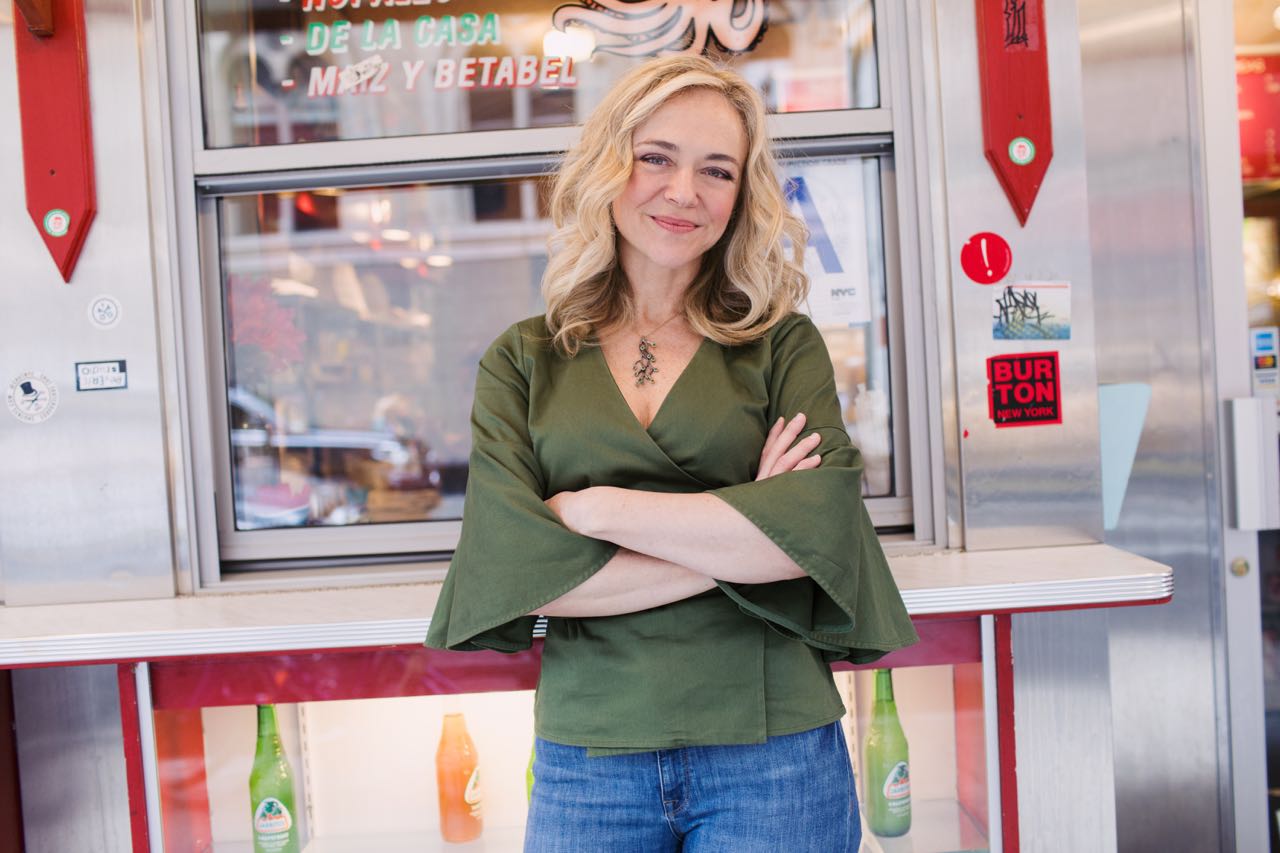
You have a daughter, and being in the theatre and raising a child seems very, very difficult. From your perspective, what’s something the theatre community could do to make that easier?
I think making the workplace a more child-friendly atmosphere would go a long way, especially for women. It’s not even about getting childcare, because we can always find a babysitter, but to do our work in the theatre, we are never around for bedtime. We’re rarely around for homework. We’re rarely there for dinner. These are the times that our kids seem to need us the most, especially as they get older, and especially as they’re teenagers. It’s not just a matter of providing adequate childcare for the kids, it’s allowing our children to be a part of our work environment. I think would be really helpful and would give, moms especially, a feeling of wholeness that we don’t always have right now. We all seem to feel pretty pulled apart.
I was going to ask you if it was different at the different ages your child was in terms of what would be helpful.
I think I’m lucky that my producer [Stacey Mindich] has allowed my daughter to come here whenever she needs to be here, and I think that’s really important. When they’re younger, it’s important to be there to read them stories and sing them lullabies and put them to bed and hold them in your arms. As they become teenagers, your presence is the most necessary thing, because when they need to talk, when they need you, if you’re there, they have you. Otherwise the opportunity for connection is lost. Here I am doing a play about exactly that, and I’m not home with my kid. At least I can feel comforted knowing my employer allows her to be here. If I need her to be here because something’s going on with her, she can be in this dressing room with me and hang out during my show playing video games or whatever, or just here if she needs to talk.
One of the things that came up in Jennifer’s [Laura Thompson] interview was that with this show in particular, the letters that you all get and the fan interactions are very different. Do you find that there’s a pressure on you internally in terms of how you respond to some of that? Especially since you are a mother in real life and dealing with delicate teenagers…
There’s a lot of need out there. Especially when they look at us and they see us as these idealized mom creatures. I’ve tried so hard to make Heidi not entirely appealing as a mother, yet still some kids say, “Oh, I wish you were my mom.” And I think, “Oh wow, no you don’t.” Isn’t that interesting. It’s difficult not to want to hug everybody. Also, I want to remind everybody that really, the message is we need to see our own parents, and we need to see our own friends, and we need to see ourselves in a different way, not just come to look at us as a way to fix the problem, but to see their own problems differently. We’re still navigating that as a company and as individuals.
I wanted to get your thought on female roles in the theatre, because you’ve had an interesting career trajectory in that way with Pippin, playing a role that’s usually a boring ingénue, and then you made it really funny and interesting, and now doing this.
Since I started Dear Evan Hansen, I have not seen anything, so I don’t feel qualified to speak that intelligently about what’s happening right now, especially this season. But I have seen that things are changing, and that we are looking to musicals to show us more truthful, raw interpretations of life than they have in the past. It’s less about painting a broad caricature than it is about exploring real people. As far as women are concerned, the parallel that I see between these roles and what I see as a real mother and a real woman in our society, is that it’s incredibly open. [It’s not] the myth of perfection that we’re all suckers for. As mothers, we beat ourselves up so much about if this perfect ideal is even possible. We try to make ourselves better, better, better all the time. We look to other women and we see their lives and we think, “Oh, they’ve got it figured out,” when really, you turn over the rock and there’s something entirely different going on inside and underneath that person. I think it’s wonderful that shows are starting to give us the reality that we’re all actually experiencing in our lives.
Do you think that connects back to what you were saying before about being seen? In musicals for so long it was the glossy version of things, especially if you’re a woman, and especially if you’re blonde…
…You’d better be pretty and you’d better act pretty. It’s a challenge as an actor and as a woman to allow yourself these raw feelings and these raw expressions of emotion. It’s not been okay to show those in musicals very often—to show rage on stage, to be ugly, to let the spit fly, to sweat. These are things that we’re not supposed to do, especially as women. We’re supposed to look pretty, polished, and put together. Even when we’re singing about something that’s emotionally raw, we’re supposed to gracefully move through it, when that’s not really what life is. I’ve been afraid my whole life of allowing my very real self to be seen, and then as an actor allowing real raw ugliness to be shown. Now I’m old enough and sick of hiding it enough that it’s just got to be okay—and people are responding because we all need that. We all need more people to stand up and say, “No, it’s actually really not that. You don’t have to be polished and perfect, and nobody actually is. So here’s the underbelly of it. Take a look at that. Feel like you’re not the only one in the world. Here’s how to actually work out of that.”
I was doing an interview the other week, and something that came up was the idea that there hasn’t really been a model of what female anger looks like in the public sphere.
No, we don’t want to see it. We can see men tear each other apart. But women? To see that, it’s still shocking. It’s still shocking and it shouldn’t be. We have those feelings. We express ourselves that way. It’s okay to allow it in life and on stage.
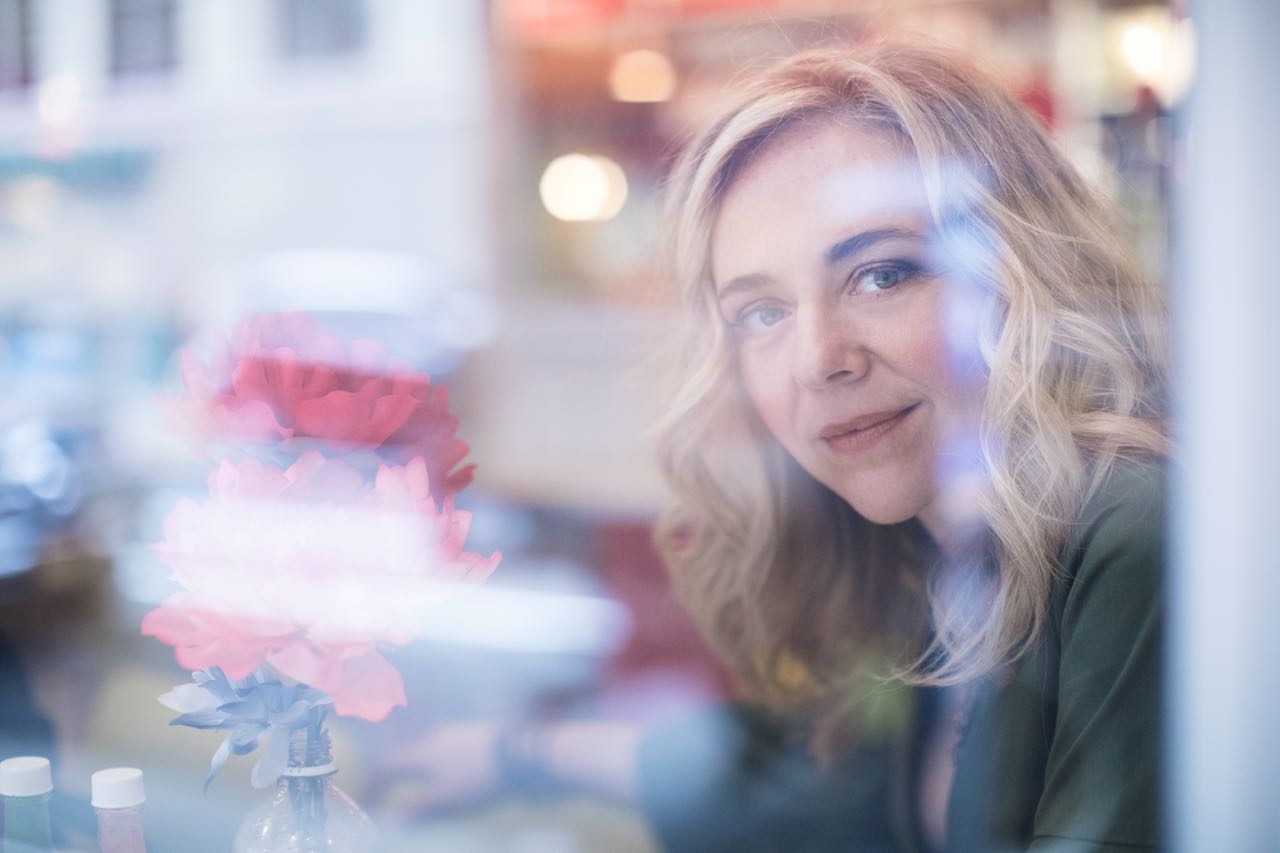
Sticking to the theme of being seen, is there anything in terms of the show that you really wish people would talk about?
One of the things about this character that is so interesting is her economic status, her social status as a lower middle class working person. I would like more of the conversations about the show to include that in it. Right now, it’s hard and interesting because we’re a high-priced, hard to get ticket, and a lot of the audiences we’re attracting must be of a certain income level in order to see our show. But as the years go on and Dear Evan Hansen has a life outside of Broadway, it’ll be interesting to see how that conversation changes, too.
It’s interesting in terms of the theatre, in general, and some of the conversations that are happening now about who’s it for, who can afford it.
There are people who come who have saved up and buy a ticket and see the show who say, “I’m a nurse’s aide. I’m a single mom.” And they’ve got a week’s salary in this ticket. It’s a struggle to be here. So when those moms come and they see themselves in the show, it’s very powerful. There are many things about this that I feel like an Evangelist about, and one is that. I’ve been in that place. Luckily I’m not right now, but I was a struggling working actor for most of my adult life, and that part’s not over. I’m okay right now, but so much of my life has been about that, so I would like the conversation to be opened up about that too, because I think that’s one of the most interesting things about this character and a really interesting aspect to the relationship that Evan has with his own life and with the life of this idealized wealthy family.
With all the interviews that you’ve been doing and people being like, “This is the story of Rachel Bay Jones,” what is the thing that you wish people would talk about or you feel like has been overplayed or gotten wrong?
I guess it would be the absence of that. There’s not always a hook. There’s not always a way to package it neatly and say, “Oh, this person’s struggle has been about this, and here is what changed.” Also, there’s not a definable arch right now. You can look back and see, “Oh, okay, over 30 years I came to New York, I left New York, and now I’m back, and now I have a Tony nomination.” That’s a great story, but we’re not done. Who the hell knows what next week is going to be like and what next year is going to be like and what the next ten years are going to be like for me? I don’t feel like I’m done and I don’t feel like the circle has been looped around and completed. This is just what we’re doing right now.

